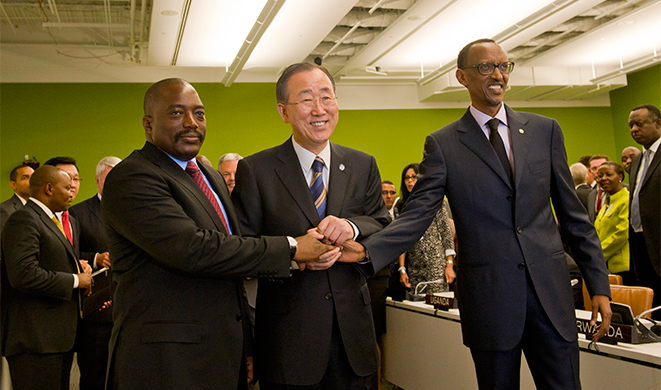
Editor's Note: Enough Project Co-Founder John Prendergast and Senior Policy Analyst Sasha Lezhnev's op-ed originally appeared on CNN.
The escalation in recent days of eastern Congo's brutal war demonstrates that unless its root causes are addressed in a broader peace process, violence could intensify and Rwanda could be drawn more directly into the fray, regionalizing the war.
Over the past week, Congo's army has nearly militarily defeated the most powerful rebel group, the M23. Rwanda has threatened to strike Congo in retaliation for what it claims was shelling on its territory by Congo's army.
M23 may soon be a spent force militarily, but many other armed groups are still active and could replace it as major destabilizers of eastern Congo unless the root causes of the war are addressed.
Recently suspended talks in Uganda only involve the Congolese government and M23, and address none of the underlying political, economic, or security drivers of violence that have created the deadliest conflict globally since World War II.
Corrupt governance, intercommunal divisions and illegal exploitation of lucrative natural resources allow the Congolese army and a host of predatory militias to operate with impunity. But the most important factor in ending mass violence is the Congo-Rwanda relationship and the economic and security interests that underlie it.
The fates of Rwanda and Congo are deeply intertwined.
Photo: (L to R) Presidents Kabila and Kagame shake hands with Secretary-General Ban Ki-moon Ban Ki-Moon (UN)

